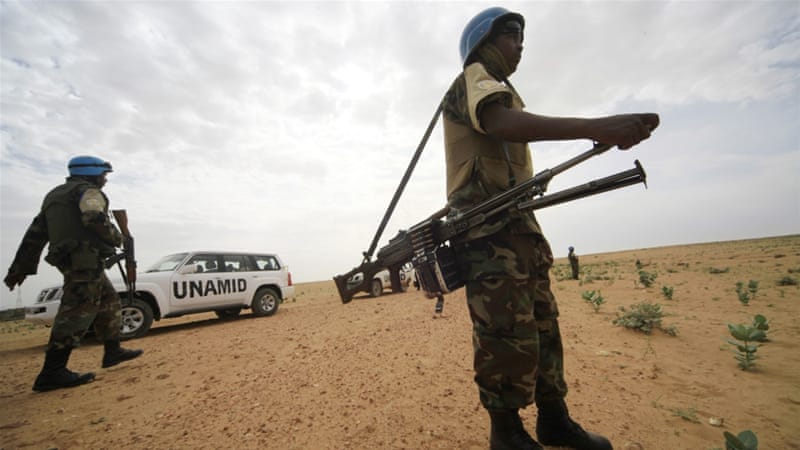Link to web article and video here.
Move comes after insurgents released 125 soldiers who fought in Darfur conflict that killed 300,000 people since 2003.

Sudanese President Omar al-Bashir on Wednesday pardoned 259 rebels captured in
fighting with government forces, including dozens who had been sentenced to death.
fighting with government forces, including dozens who had been sentenced to death.
Bashir's order came three days after a prominent insurgent group freed dozens of
prisoners, mostly soldiers, it had captured in fighting with government forces.
prisoners, mostly soldiers, it had captured in fighting with government forces.
"The decision to pardon 259 rebels aims at preparing the environment for achieving
lasting peace in the country," Bashir's office said in a statement.
lasting peace in the country," Bashir's office said in a statement.
Those pardoned include 66 rebels who had been sentenced to death.
Of the 259 rebels to be released now, dozens were captured in 2015 after fierce
fighting in war-torn South Darfur between government forces and rebels.
fighting in war-torn South Darfur between government forces and rebels.
Although the presidency did not specify which group these rebels belonged to, government
forces in 2015 fought pitched battles with the Justice and Equality Movement (JEM) in
South Darfur.
forces in 2015 fought pitched battles with the Justice and Equality Movement (JEM) in
South Darfur.
Forty-four rebels also among those pardoned were captured in the city of Omdurman in
2008 after similar clashes between government forces and JEM fighters.
2008 after similar clashes between government forces and JEM fighters.
"The decision to pardon is a progressive step and would help in the ceasing of hostilities,"
Nur Ahmed al-Nur, editor-in-chief of Assayha newspaper, told AFP news agency.
Nur Ahmed al-Nur, editor-in-chief of Assayha newspaper, told AFP news agency.
On Sunday, another prominent rebel group, the Sudan People's Liberation Movement-North (SPLM-N), freed at least 125 prisoners, mostly soldiers.
The prisoners had been captured in Blue Nile and South Kordofan states, where the
SPLM-N has been fighting government forces for years.
SPLM-N has been fighting government forces for years.
The conflict in Darfur, a region the size of France, erupted in 2003 when ethnic minority
rebels took up arms against Bashir's Arab-dominated government in Khartoum, accusing
it of marginalising the region economically and politically.
rebels took up arms against Bashir's Arab-dominated government in Khartoum, accusing
it of marginalising the region economically and politically.
At least 300,000 people have been killed in Darfur and another 2.5 million displaced since
the conflict erupted, the United Nations says.
the conflict erupted, the United Nations says.
In 2011, similar rebellions against Bashir's regime also broke out in Blue Nile and
South Kordofan states.
South Kordofan states.
Khartoum announced a unilateral ceasefire in June 2016 in all three conflict zones,
which it extended by six months in January.
which it extended by six months in January.
Bashir, who has ruled Sudan for nearly three decades, is wanted by the
International Criminal Court for alleged war crimes in Darfur. He steadfastly
denies the charge.
International Criminal Court for alleged war crimes in Darfur. He steadfastly
denies the charge.